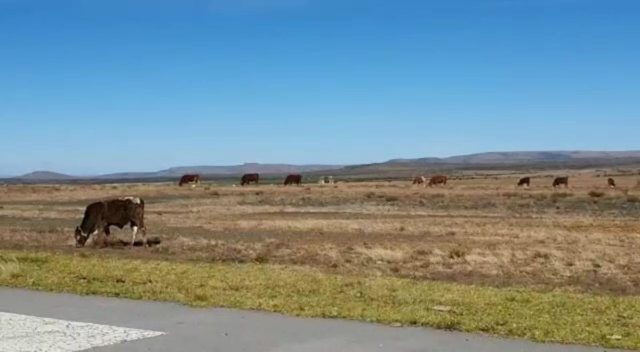WHILE the budget allocation of the Department of Agriculture, Land Reform and Rural Development in the Northern Cape has decreased by R560 million, the numerous challenges, including drought, climate change, economic instability, land reform and rural safety, remain cause for concern.
This is according to Reinette Liebenberg of the DA, who pointed out that as agriculture was the life-support and economic driver for the Northern Cape, the fundamental aim of the department should be support to farmers, access to markets and improving the farming environment.
“The department acknowledged the need for urgent drought relief in its own research and gave an estimate of R422 million that is needed to mitigate the effects of the continuous drought. The department stresses the fact that focus will be placed on risk management, however, the budget does not include any funds for Disaster Risk Management.”
She pointed out that the Province remained in the grip of drought and farmers were in exactly the same position as last year. “This is as a result of the provincial government’s failure to drive the drought with either an extension of the Drought Disaster Declaration and/or availing provincial drought funds or presenting a plan to enlarge the fodder bank in the short term.”
According to Liebenberg, farmer support and development in the budget amounted to R229.9 million. “When we look at the figures of the number of small farmers who will be receiving assistance, it declines dramatically to 800 (previously 1 300 to 1 900), and advice to farmers will decline from around 3 000 to 500.”
She stated further that the department “continuously and stubbornly” supported agricultural entities that could not even become economically viable over the past 12 to 19 years.
“The Nieuwoudtville Rooibos factory, in which more than R160 million was invested over the past years, will receive another R9 million, while farmers are still awaiting payment for produce delivered. The Kalahari Kid Project is still not self-sustainable, even after 19 years of provincial assistance, but it will receive another R18 million with three directors receiving around R3 million.”
Liebenberg slated the department’s failure to invest in critical scientific research and the protection of its seven research stations as “a disgrace”.
“Our assets are not being protected and used for the purpose intended – research. This department continues to neglect its duty by abdicating the responsibility of the invasive prosopis trees to the national Department of Water and Sanitation. Our veld conditions and water availability becomes critical but we rather spend money on boreholes but fail to address one of the main culprits.”
Meanwhile she expressed concern on budgeting for catering by the department, which she pointed out totalled more than R3 million. “This could have been allocated for study bursaries.”
“This department is also failing to make the bold decision to transfer land to their rightful owners, such as the Pniel or the Kalahari Kid farms. Only approximately three of the 93 CPAs are classified as successful. The failure of the Department of Land Reform to act speedily is concerning when one takes note of their commitment to buy a farm in Strydenburg, late in 2019, but to date nothing has happened.
“Commonage farmers all around our towns are equally frustrated as there is little hope for expansion. Lack of accountability and management over land is resulting in water losses, vandalism, overgrazing. This adds to tension amongst the farming communities.”








